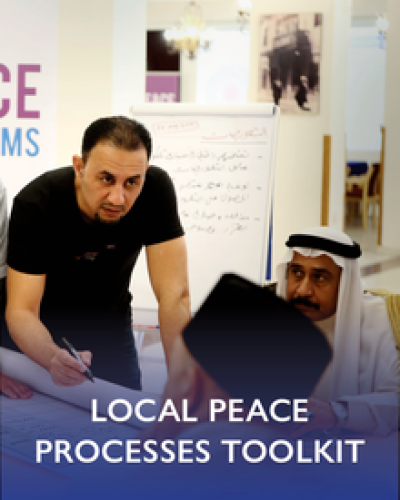Local peace processes toolkit

BACKGROUND AND PURPOSE
Defined here as a process through which drivers of conflict afflicting a particular geographical area are addressed through a range of activities involving mediation, negotiation and/or facilitated dialogue, local peace processes have increasingly been turned to as an approach to resolving conflict over the last decade. This shift is due in part to the failures of national peace processes to bring about lasting peace as well as to the changing nature of global conflicts, which have become more complex and multilayered. One country that has seen local peace processes and agreements emerge as a vital tool for efforts to bring stability and peace is Iraq: 20 such processes have occurred across the country since 2014.
Yet despite the increased use of local peace processes in both the global and Iraqi context, lessons learned from global practices as well as those from the Iraqi experience are still emerging. This toolkit is an attempt to respond to this, in the hopes of furthering global best practices through a better understanding of the Iraqi experience.2 More specifically, the purpose of this toolkit is twofold: to highlight best practices and lessons learned from the global practice of local peace processes; and to extract lessons learned and best practices from the Iraqi experience of designing, implementing and monitoring local peace processes and agreements. In doing so, the ultimate aim is to provide donors, practitioners and overall supporters of local peace processes in Iraq and elsewhere with a resource that can be used to design and implement more effective peace processes.
The toolkit is divided into three chapters. Chapter One covers the best practices and lessons learned from the global experience with local peace processes. It begins with an outline of the factors that have made local peace processes a key peacebuilding approach before proceeding to highlight some best practices and key lessons learned emerging from the literature to date. Chapter Two provides an overview of the Iraqi experience with local peace processes. It includes a listing of the key local peace processes in Iraq, a description of their main characteristics, lessons learned, an assessment of their comparative effectiveness and links to global best practices.
Chapter Three provides guidelines and recommendations for those wanting to design, implement and support local peace processes in Iraq.




